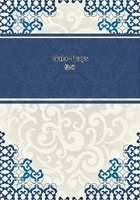
第101章
Long ago, when you were a little boy or a little girl,--perhaps not so very long ago, either,--were you never interrupted in your play by being called in to have your face washed, your hair combed, and your soiled apron exchanged for a clean one, preparatory to an introduction to Mrs. Smith, or Dr. Jones, or Aunt Judkins, your mother's early friend? And after being ushered into that august presence, and made to face a battery of questions which where either above or below your capacity, and which you consequently despised as trash or resented as insult, did you not, as were gleefully vanishing, hear a soft sigh breathed out upon the air,--"Dear child, he is seeing his happiest days"? In the concrete, it was Mrs. Smith or Dr.
Jones speaking of you. But going back to general principles, it was Commonplacedom expressing its opinion of childhood.
There never was a greater piece of absurdity in the world. Ithought so when I was a child, and now I know it; and I desire here to brand it as at once a platitude and a falsehood. How the idea gained currency, that childhood is the happiest period of life, I cannot conceive. How, once started, it kept afloat, is equally incomprehensible. I should have supposed that the experience of every sane person would have given the lie to it.
I should have supposed that every soul, as it burst into flower, would have hurled off the imputation. I can only account for it by recurring to Lady Mary Wortley Montague's statistics, and concluding that the fools ARE three out of four in every person's acquaintance.
I for one lift up my voice emphatically against the assertion, and do affirm that I think childhood is the most undesirable portion of human life, and I am thankful to be well out of it.
I look upon it as no better than a mitigated form of slavery.
There is not a child in the land that can call his soul, or his body, or his jacket his own. A little soft lump of clay he comes into the world, and is moulded into a vessel of honor or a vessel of dishonor long before he can put in a word about the matter. He has no voice as to his education or his training, what he shall eat, what he shall drink, or wherewithal he shall be clothed. He has to wait upon the wisdom, the whims, and often the wickedness of other people. Imagine, my six-foot friend, how you would feel, to be obliged to wear your woollen mittens when you desire to bloom out in straw-colored kids, or to be buttoned into your black waistcoat when your taste leads you to select your white, or to be forced under your Kossuth hat when you had set your heart on your black beaver: yet this is what children are perpetually called on to undergo. Their wills are just as strong as ours, and their tastes are stronger, yet they have to bend the one and sacrifice the other; and they do it under pressure of necessity. Their reason is not convinced; they are forced to yield to superior power; and, of all disagreeable things in the world, the most disagreeable is not to have your own way. When you are grown up, you wear a print frock because you cannot afford a silk, or because a silk would be out of place,--you wear India-rubber overshoes because your polished patent-leather would be ruined by the mud; and your self-denial is amply compensated by the reflection of superior fitness or economy. But a child has no such reflection to console him. He puts on his battered, gray old shoes because you make him; he hangs up his new trousers and goes back into his detestable girl's-frock because he will be punished if he does not, and it is intolerable.
It is of no use to say that this is their discipline, and is all necessary to their welfare. It is a repulsive condition of life in which such degrading SURVEILLANCE is necessary.
You may affirm that an absolute despotism is the only government fit for Dahomey, and I may not disallow it; but when you go on and say that Dahomey is the happiest country in the world, why--I refer you to Dogberry. Now the parents of a child are, from the nature of the case, absolute despots. They may be wise, and gentle, and doting despots, and the chain may be satin-smooth and golden-strong; but if it be of rusty iron, parting every now and then and letting the poor prisoner violently loose, and again suddenly caught hold of, bringing him up with a jerk, galling his tender limbs and irretrievably ruining his temper,--it is all the same; there is no help for it. And really to look around the world and see the people that are its fathers and mothers is appalling,--the narrow-minded, prejudiced, ignorant, ill-tempered, fretful, peevish, passionate, careworn, harassed men and women. Even we grown people, independent of them and capable of self-defence, have as much as we can do to keep the peace. Where is there a city, or a town, or a village, in which are no bickerings, no jealousies, no angers, no petty or swollen spites? Then fancy yourself, instead of the neighbor and occasional visitor of these poor human beings, their children, subject to their absolute control, with no power of protest against their folly, no refuge from their injustice, but living on through thick and thin right under their guns.